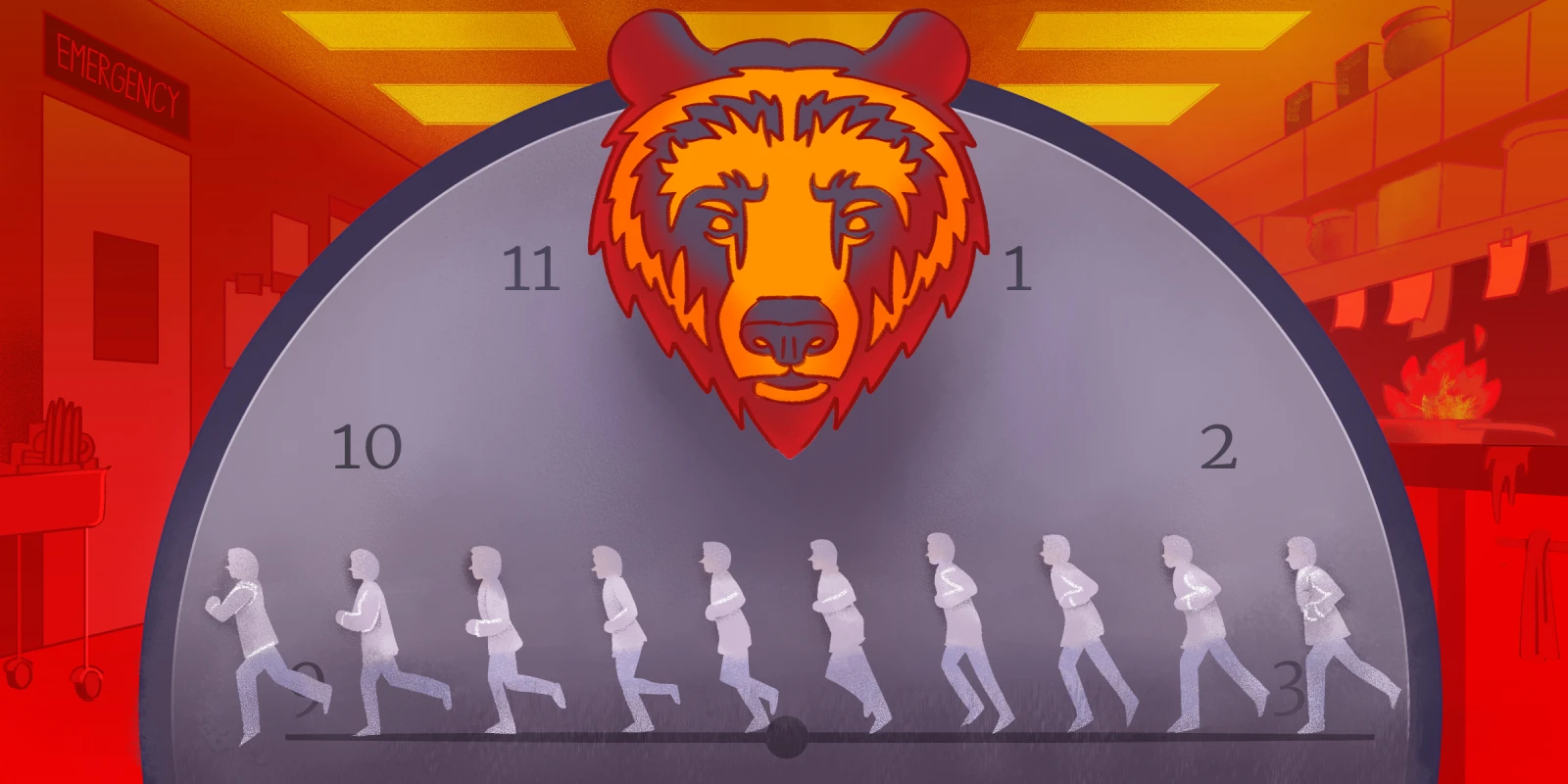As a surgical resident on call, stress is the status quo. In my program, it’s normal for one junior resident to cover floor patients across three hospitals, consult from four EDs, take inpatient consults, and take patient phone calls, all while on call overnight. The excitement of making semi-autonomous decisions and lots of caffeine propelled me through the sleepless nights in the first few weeks of this. Still, a few months in, I had multiple calls in a row during which patients I was called to care for died. Over those three weeks, the stakes of my job became real, and my resilience began to falter.
The mounting stress exposed a gap in my previously impenetrable support system. My mom and fiancé, both outside of medicine, listened to hours of vented frustration and pre-call anxiety but couldn’t fully understand my experience beyond the number of hours I worked. I struggled to communicate the emotional toll and constant sense of urgency that contributed to my post-call exhaustion as much as, or more than, the sleep deprivation.
During this time, I was often too tired to do more than finish notes and watch a TV episode before bed. I was initially introduced to “The Bear” at work. An attending had recommended the show to the NP who found it too anxiety-provoking to be enjoyable. The attending touted the show’s value as a metaphor for hospital inefficiency and reluctance to embrace change. My fiancé and I were looking for a new series, so we decided to give “The Bear” a try. I had high hopes that the show would offer a critical view of team dynamics or criticism of work-life imbalance. I did not expect it to make me feel the same emotions that I did on call.
Season 1, Episode 7 of “The Bear," a drama about a cast of characters working to keep a struggling deli afloat, offers the most realistic representation of life on call I’ve seen. The episode follows the restaurant crew as they begin their workday. There is palpable friction between team members – some with fresh perspectives and new ideas and others with decades of experience and stubborn loyalty to tradition. This conflict between new and old permeates the entire season, but in this particular episode, the team division is lethal. One of the newer team members makes the devastating mistake of leaving the restaurant with hundreds of to-go orders due minutes after the restaurant opens for the day. The audience witnesses the team crumble under the stress of managing mistakes and impossible expectations – they simply do not have enough food or manpower to fulfill the orders.
On one particularly bad call day, I was paged about an airway at one hospital. As I rushed to assess that patient, I received a second page about a patient with an active bleed at a second hospital. Before I had even hung up the phone with the ER for that patient, I received a third page for a patient at yet another hospital. In these cases, there is a senior available for backup, but it is still left to the junior resident to triage until they arrive. Emergencies elicit a sense of fear and a rush of adrenaline. In some ways, this is the easiest part of call. If there is a true emergency, it’s clear what to prioritize. More often, call is a litany of seemingly mundane tasks coming in rapid succession – you can receive nine pages, call them all back, and hang up the phone just in time to receive a 10th page asking why you haven’t put in the order requested by the first one. My call stress comes from the sheer volume of work and the knowledge that any oversight or delay could become an emergency.
Nearly two years into primary call, I still sometimes find it to be as impossible as instantaneously filling 500 sandwich orders. At nearly every point while on call I have at least two nurses or teams requesting my attention, and most nights our post operative patients need to be seen. Though these post op checks can be as easy as saying hello to a patient and answering a few routine questions about when their scar will heal, other checks are more pressing. A timely post operative check is critical to catch early changes that foreshadow post operative complications with grave consequences. It’s hard to know which patient needs you most and frequently impossible to see all of them exactly on time. The pressure to see everyone at once, even for seemingly trivial things, and the sense of anxiety that it creates, is challenging to communicate.
At least, it was until I saw Episode 7 of “The Bear." It perfectly replicates my feelings of being on call. The show features a cacophony of noise, including a relentless order ticker that mirrors the pager on a bad night. Just as each page adds an hour of work to an overwhelmed to-do list, the ticker shoots out order receipts that the team struggles to pin to their overcrowded line. An electric guitar begins almost imperceptibly but increases in volume throughout the episode, mimicking a viewer’s blood pressure and heart rate. The camera careens back and forth, tracking the characters in a single shot that disorients the viewer. The lack of typical cuts and breaks from scene to scene builds the tension and offers no reprieve from the tumult. This sensory overload is exactly how I feel on call, running back and forth between hospitals and fielding pages while placing orders between dictating notes.
At the end of the episode, two different characters quit. It feels strange to admit, but there was something comforting about seeing other people quit in response to the kind of stress I felt nightly. Watching viewers buckle under the anxiety of simply watching the show made it more obvious that resilience is the anomaly. It is not unusual to struggle. It is unusually strong to persevere.
Medicine is often challenging to translate to laypeople. The hours, physical nature of the job, and high stakes collide with the real human emotions of medical teams pushed to do more and be more for patients. The moments when our jobs are least relatable are often the moments we most need someone to understand. “The Bear” was able to translate my feelings into a medium that my family and friends outside of health care could relate to. At the same time, it allowed me to forgive myself for feeling stress and anxiety in response to stressful situations. When I walk out of the hospital in the morning, I can take pride in knowing that despite the blaring pager and my elevated heart rate, I finished every task and gave my patients the best possible care.
What movies or TV shows encapsulate your experience as a resident or clinician? Share in the comments!
Dr. Allison Oliva is an otolaryngology resident in Miami, FL. When she’s not at work, she enjoys walking along the water with her fiancé, drinking coffee, reading, and watching Miami Hurricanes football. Dr. Oliva is a 2024–2025 Doximity Op-Med Fellow.
Illustration by April Brust







